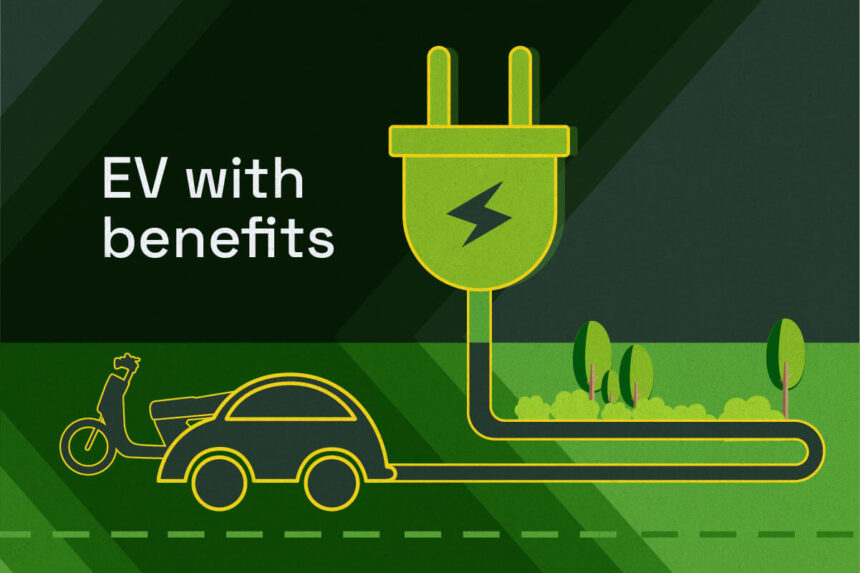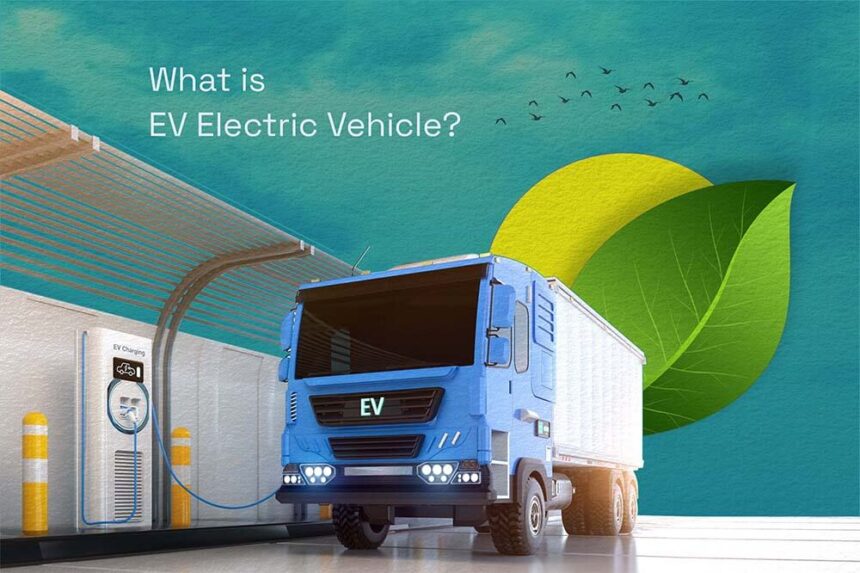What exactly are electric vehicles?
Electric vehicles are those that are powered by one or more electric motors. They can either be powered autonomously by a battery or by a collector system using electricity from extravehicular sources. They can occasionally also be powered by fuel cells, generators, or solar panels, which turn fuel into electricity. Electric cars and scooters are the most widely used types of electric vehicles on public roads. They are not the only kinds of electric vehicles that can be used for transportation by people, though. Rail vehicles, surface and subsurface craft, electric airplanes, and electric spaceships are all available.
By partnering with other upcoming technologies like autonomous driving, linked vehicles, and shared mobility, EVs can create a future mobility vision called “Connected, Autonomous, Shared, and Electric” (CASE) mobility.
What kinds of electric vehicles are there?
Fewer individuals are aware that there are various types and classifications of electric vehicles. Since not all electric vehicles use the same technologies, they are divided into a number of groups, which are detailed below:
Battery Electric Vehicles (BEV): These automobiles are entirely battery-powered. In comparison to hybrid and plug-in hybrid vehicles, these are the most efficient types of electric vehicles.
Two additional categories are used to categorize hybrid electric vehicles.
Hybrid Electric Vehicles (HEVs): These vehicles combine an internal combustion engine with a motor driven by batteries. The vehicle’s internal combustion engine is utilized for both propulsion and charging the battery when it is low on power. These automobiles are less effective than plug-in or fully battery-powered automobiles, nevertheless.
These vehicles, known as plug-in hybrid electric vehicles (PHEV), also have an internal combustion engine and a motor driven by batteries. The battery is charged from an external socket, hence the phrase “plug-in,” which is the distinction. As a result, electricity rather than internal engine gasoline is used to recharge the vehicle’s battery. PHEVs are less efficient than BEVs and more efficient than HEVs.
Full-Cell Electric Vehicles (FCEV): These automobiles use chemical energy to generate their electric power. For instance, an FCEV powered by hydrogen
It’s critical to comprehend why electric vehicles have achieved such widespread popularity in recent years now that we have a better understanding of what they are and the various varieties of them.
Why should consumers prefer electric vehicles?
Electric vehicles are currently dominating the automotive market because they are in line with the developing attitude and ideology of environmentalism that is being assimilated into human civilization as they continue to witness environmental devastation and their shameful role in it. With their decisions to lessen the size of their carbon footprints, humans are becoming more responsible. Consequently, people are inclined to purchase electric cars. Because they do not emit exhaust emissions, they significantly reduce the amount of carbon emissions produced by conventional automobiles. In addition, electric vehicles, as their name suggests, are powered by electricity, which eases the strain of energy generation from the already exhausting use of fossil fuels. These are the main causes behind the ardent support for electric automobiles.
How is an electric vehicle beneficial?
Compared to a comparable gasoline or diesel vehicle, an electric vehicle has significantly reduced operating costs. Electric vehicles use energy to recharge their batteries as opposed to using fossil fuels like gasoline or diesel. Electric cars are more cost-effective to charge than gasoline or diesel vehicles due to their higher efficiency and lower cost of energy. When electric vehicles are powered by renewable energy sources, their use can be more environmentally friendly. The price of electricity can be further reduced if charging is done with the help of renewable energy sources installed at home, such as solar panels.
Electric cars require much less maintenance than internal combustion engines since they have fewer moving parts. Compared to typical gasoline or diesel automobiles, electric cars require less maintenance. As a result, the annual cost of operating an electric car is quite low.
Driving an electric car can help you lessen your carbon footprint because they have no exhaust emissions. You can further reduce the environmental impact of charging your car by selecting renewable energy sources for your home’s electricity.
Compared to petrol or diesel automobiles, registration and road tax are less expensive for electric vehicles. Depending on the state you live in, the government offers a variety of programmes and incentives.
The efficiency of EV batteries is higher than that of gasoline-powered vehicles, which convert only 17–21% of their energy into movement. Additionally, since there is no exhaust system, EVs are smooth and silent, which makes for a pleasant driving experience. Additionally, they accelerate swiftly, which improves their torque and responsiveness. Since their powertrains have fewer moving components, the majority of EVs also feature larger interiors with flat flooring.
Conclusion
Therefore, switching to electric vehicles would be highly beneficial.






